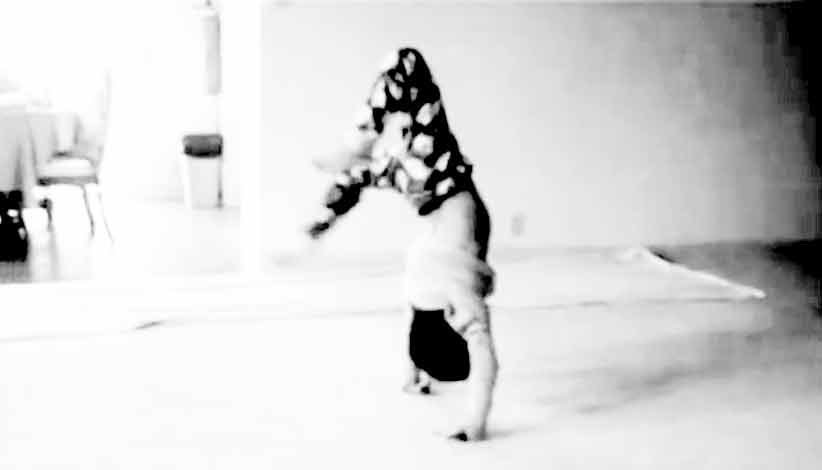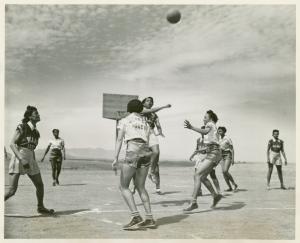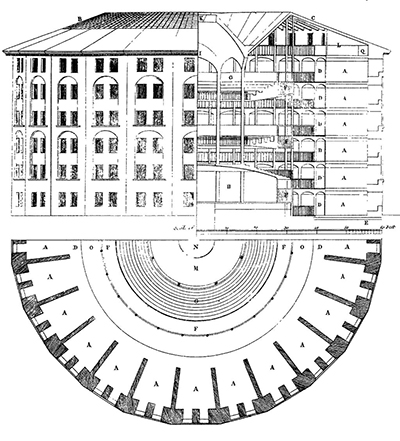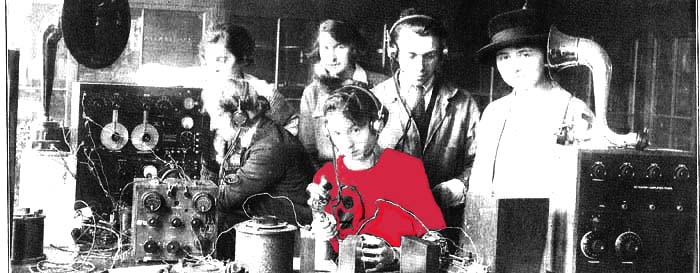DATE |
TOPICS |
READINGS, ASSIGNMENTS, DUE DATES |
| 1 |
Tuesday
Jan 14
|
Introduction to Digital Culture
Syllabus, course schedule.
Explain Blackboard/Content
|
Syllabus
FORTEPAN Project introduced
FINAL PAPER introduced
IN CLASS: Introductions and interviews Questions for Bettina |
Thursday
Jan 16 |
Health and Tech
Digital immigrants vs. digital natives
Our relationship with our smartphones
|
READINGS/VIEWINGS (due today)
- Bored and Brilliant: Introduction: The case for Boredom
- Bored and Brilliant: Ch. 1 What We Talk About When We Talk About Boredom
DUE: 1/2 page write up 01 (uploaded to elearning before class) SINGLE SPACE PLEASE, TIMES NEW ROMAN. Grading guidelines are here.
Take notes as you read through the introduction and Chapter 1.
Q1. Describe your relationship with your phone. How healthy is it?
Q2. Summarize your notes: what stood out for you from Zomorodi’s description of where our phones and tablets are taking us, and how might boredom be a healthy break from digital culture.
REMINDER: THIS SHORT PAPER (approximately 2-3 paragraphs--one paragraph per question, single space, times new roman--must be loaded onto Elearning as a digital file--no rtf or wordperfect files please!). If you don't have Word write your piece in Google Docs and then simply save as a Word File. DO NOT SEND ME A LINK TO A GOOGLE DOC.
ASSIGN: B&B CHALLENGE 1: pp. 49-53: Download “Moment” App or “BreakFree” App and OBSERVE YOURSELF Friday-Monday, Friday Jan. 17-20.

|
| 2 |
Tuesday,
Jan 21
|
Health and Tech
Reorganize the APPS on your phone; reduce notifications
From One Second to the Next, Herzog
A Dark Consensus About Screens and Kids Begins to Emerge in Silicon Valley: “I am convinced the devil lives in our phones.”
The Digital Gap Between Rich and Poor Kids Is Not What We Expected: America’s public schools are still promoting devices with screens — even offering digital-only preschools. The rich are banning screens from class altogether. New York Times, Oct. 26 2018. |
DUE: CHALLENGE 1
READINGS/VIEWINGS (due today)
- Bored and Brilliant: Ch. 2, Digital Overload
- Bored and Brilliant: Ch. 3, Out of Sight
DUE: 1/2 page write up 02 (uploaded to elearning before class) SINGLE SPACE PLEASE, TIMES NEW ROMAN. Grading Guidelines are here.
Q1. First describe your experiences with deep reading, maybe in terms of the kind of assignments you are given in college, and your preferences for reading in print, e-book, online, etc; Then, explain what author Manoush Zomorodi means by biliteracy as an educational goal, and what you think about it?
Q2. How are smartphones, according to Zomorodi, like a four-year-old child? To what extent can you relate, and please offer an example?
ASSIGN: B&B CHALLENGE 2, pp. 67-72: Keep your devices out of reach while in motion; CHALLENGE UPGRADE: Note 5 things you've never noticed before. |
Thursday,
Jan 23 |
Black Mirror: It's All About You |
DUE: CHALLENGE 2
READINGS/VIEWINGS (due today)
- Bored and Brilliant: Ch. 4, Making Memories
DUE: 1/2 page write up 03 (uploaded to elearning before class) SINGLE SPACE PLEASE, TIMES NEW ROMAN)
Q1. How does that persistent need to capture the moment change how we actually experience the moment?
Q2. What should we expect from our cumulative photos in the future?
ASSIGN: B&B CHALLENGE 3, pp. 82-84: for ALL DAY Friday: Photo Free Day.
REMINDER: THIS PAPER must be loaded onto Elearning as a digital file. Please no rtf fonts or word perfect...If you don't have word write your piece in Google Docs and then simply save as a Word File. |
| 3 |
Tuesday,
Jan 28 |
Addiction
Tristan Harris presentation to Google:
A Call to Minimize Distraction and Respect Users Attention
Tristan Harris Ted Talk
Growthhackers.com
Headspace
Inside a Gaming Addiction Rehab
Network Effect
Can't Put Down that Device? That's by Design
Essena O'Neil
National Day of Unplugging |
DUE: CHALLENGE 3
READINGS/VIEWINGS (due today)
DUE: 1/2 page write up 04 (uploaded to elearning before class) SINGLE SPACE PLEASE, TIMES NEW ROMAN)
Q1. Do you have an experience with someone who is, or has been, addicted to video or mobile games, which you can relate to the Bored and Briliant Ch. 5?
Q2. What kind of tactics, mentioned in the Binge Breaker article and also Bored and Brilliant, are used in the industry to manipulate people to continue using a particular program, software, or app?
ASSIGN: B&B CHALLENGE 4 IN CLASS, pp. 107-109: Delete that App
ASSIGN: B&B CHALLENGE 5, pp. 127-131: Take a "Phonecation" either on Wednesday Jan. 29, Thursday Jan 30, or Friday Feb. 31. One of these three days.
|
Thursday,
Jan 30 |
Work
When you're a Digital Nomad the World is your Office
Gloria Mark: The Cost of Interrupted Work (bad study)
Data Crunching is coming to help your boss manage your time-NYTimes
- Morning Call
"TechLash" hits college campuses (New York Times, 1/11/2020 |
DUE: CHALLENGE 5 (BEFORE CLASS TIME)
READINGS/VIEWINGS (due today)
DUE: 1/2 page write up 05 (uploaded to elearning before class) SINGLE SPACE PLEASE, TIMES NEW ROMAN
Q1. Why is creativity valued so highly in the modern, white collar workplace?
Q2. Summarize the conditions of Amazon's workplace as described in the article "Inside Amazon." (ANSWER IF LAST NAME BEGINS WITH A THROUGH F)
Q3: Summarize the conditions of Amazon's workplace as described in the article "I Worked at an Amazon Fulfillment Center."
(ANSWER IF LAST NAME BEGINS WITH G THROUGH W)
ASSIGN: B&B CHALLENGE 6,pp. 144-148
ASSIGN: B&B CHALLENGE 7, pp. 163-165: The Bored and Briliant Challenge:
TO BE COMPLETED INDEPENDENTLY DURING CLASS TIME. Get really bored. |
| 4 |
Tuesday,
Feb 4 |
Reclaiming Wonder and "Wandering Away" |
DUE: CHALLENGE 6 (by SUNDAY NIGHT)
DUE: CHALLENGE 7 (completed during class)
READINGS/VIEWINGS (due today)
DUE: 1/2 page write up 06 (written during class) SINGLE SPACE PLEASE, TIMES NEW ROMAN)
Q1 (relating to Challenge 6). Describe your experience hanging out, watching people, etc. for an hour. What went through your head? How was this Experience novel, positive or negative?
Q2 (relating to Challenge 7). Similar to the "Observe" challenge, what happened when you allowed yourself to become totally bored? Please incorporate the readings from Bored & Brilliant Chapters 8 and 9 and the two video viewings, which you just need to dip into, not watch completely.

|
Thursday,
Feb 6
|
Physical Health and Technology
1. Construction
2.Use
3. Deconstruction
|
READINGS/VIEWINGS (due today)
- Bored and Brilliant: Ch. 9, You Are Brilliant
- A book chapter or a long article from the New Yorker, Wired the Atlantic, or Harpers that has to do with the following topics: Technology as it has to do with a) Assembly Plant workers in China or India--their health and safety; b) the Physical or Mental health among users (for example, eyesight, brains, etc), or c) Environmental HGealth with the rise of technology being thrown away. YOUR CHOICE.
DUE: 1/2 page write up 07 (uploaded to elearning before class) SINGLE SPACE PLEASE, TIMES NEW ROMAN)
- Q1: What are your Key takeaways from Bored and Brilliant?.
- Q2: What book chapter or magazine article did you read and what did you learn about Health and Technology?
|
| 5
|
Tuesday,
Feb 11 |
If You See Something, Write Something, NY Times, March 28 2018
Creative commons
|
LESTENING (due today)
DUE: 1/2 page write up 08 (uploaded to elearning before class) SINGLE SPACE PLEASE, TIMES NEW ROMAN)
1. Type up your NOTES from the interview, rather than answer a particular question (these should be substantial). Bring your notes to class (and hand them in on Blacboard beforehand). Take good notes.
3. In your own words, what did you learn about the CC?
HOMEWORK: Please refer to the YELLOW section of the WIKI Assignment.
GO TO ROD LIBRARY AND CHECK OUT A NON-FICTION BOOK CONTAINING INFORMATION ABOUT ANYTHING YOU MAY BE PARTICULARLY INTERESTED OR EVEN CASUALLY INTERESTED IN. THIS BOOK WILL PROVIDE CONTENT FOR A WIKIPEDIA ENTRY. YOU MUST BRING THIS TO CLASS ON TUESDAY.
WIKIPEDIA ASSIGNMENT INTRODUCED
|
Thursday,
Feb 13 |
The Creative Commons and Democracy on the Web
Creative commons
Wikiality/Steven Colbert
Turks click away: but Wikipedia is Gone
Turkey Purges 4000 more officials and blocks Wikipedia |
WORK IN CLASS (WE WILL BEGIN, AND MOSTLY FINISH, IN CLASS)
WIKIPEDIA ASSIGNMENT DUE.
|
6 |
Tuesday,
Feb 18 |
Copyright, CC and the Public Domain
|
FORTEPAN PROJECT Part I: Copyright, CC and the Public Domain FORTEPAN PROJECT ASSIGNED
|
Thursday,
Feb 20 |
Digital images and the public web
Getty, Flickr, Creative Commons, LOC, New York Digital Library, UNI/Rod, FORTEPAN
Robert Wadlow
Getty using Public Domain images and selling them |
FORTEPAN PROJECT Part II
 |
| 7 |
Tuesday,
Feb 25 |
|
Studyguide EXAM 1
|
Thursday,
Feb 27 |
|
NO CLASS |
| 8 |
Tuesday,
Mar 3
|
Government Control, Aaron Swartz, and Net Neutrality
PART 1 of KILLSWITCH: Directed by Ali Akbarzadeh, written by Christopher Dollar and Ali Akbarzadeh, featuring Peter Ludlow, Tim Wu, Lawrence Lessig. Available on Netflix. Expect some swear words.
JOHN OLIVER on the Patriot Act and Section 215 |
WE WILL VIEW PART I OF "KILLSWITCH" IN CLASS
MAKE SURE YOU BEGIN READING 1984
Final Paper assigned |
|
Thursday,
Mar 5 |
The American Surveillance State, Panopticism, & Edward Snowden,
PART 2 of KILLSWITCH |
READ:
MAKE SURE YOU ARE READING 1984 for next week |
| 9 |
Tuesday,
Mar 10 |
John Oliver on Edward Snowden |
READINGS/VIEWINGS (due today)
- 1984, George Orwell Part 1 and 2
DUE:QUIZ
|
Thursday,
Mar 12
|
1984 Part III
GOVERNMENT SURVEILLANCE PPT
Swartz & Snowden
Foucault, Panopticon, Fear and power and control
North Koreans reaction after Kim jong Il's death
|

|
| SPRING BREAK |
| 11 |
Tuesday,
Mar 24 |
Facial Recognition and China's Surveillance State
|
CORONAVIRUS WEEK 1, MARCH 24-26 INSTRUCTIONS
|
Thursday,
Mar 26 |
Facial Recognition and China's Surveillance State
|
CORONAVIRUS WEEK 1, MARCH 24-26 FOLLOW UP |
| 11 |
Tuesday,
Mar 31 |
Privacy and Surveillance
|
CORONAVIRUS WEEK 2, MARCH 31-APRIL 2 INSTRUCTIONS |
Thursday,
Apr 2 |
Privacy and Surveillance
ACTIVITY:Digital Security Plan
|
CORONAVIRUS WEEK 2, MARCH 31-APR 2 FOLLOW UP |
| 12 |
Tuesday,
Apr 7 |
|

CORONAVIRUS WEEK 3, APR 7-APR 9 INSTRUCTIONS
FOTOMONTAGE CONTEST Assigned
|
Thursday,
Apr 9 |
|
CORONAVIRUS WEEK 3, APR 7-APR 9 FOLLOW UP |
| 13 |
Tuesday,
Apr 14 |
|
CORONAVIRUS WEEK 4, APR 14-APR 16 INSTRUCTIONS |
Thursday,
Apr 16 |
|
CORONAVIRUS WEEK 4, APR 14-APR 16 FOLLOW UP
|
| 15 |
Tuesday,
Apr 21 |
|
CORONAVIRUS WEEK 5, APR. 21-23 INSTRUCTIONS |
Thursday,
Apr 23 |
|
|
| 16 |
Tuesday,
Apr 28
|
|
CORONAVIRUS WEEK 6, April 28-30 INSTRUCTIONS
 |
Thursday,
Apr 30 |
|
|
| EXAM WEEK |
Wednesday, May 6
|
|
FINAL PAPER: any time, May 6-May 8.
CORONAVIRUS WEEK 7 (LAST WEEK) INSTRUCTIONS |
|
|